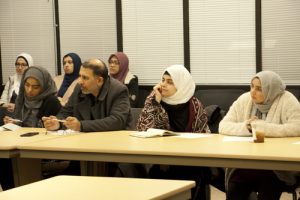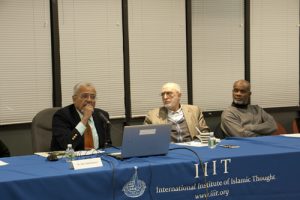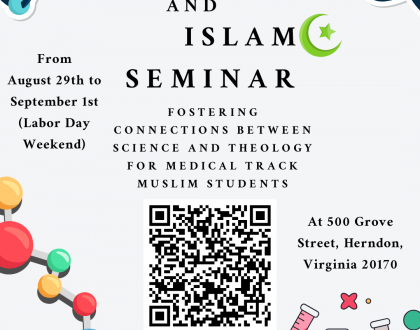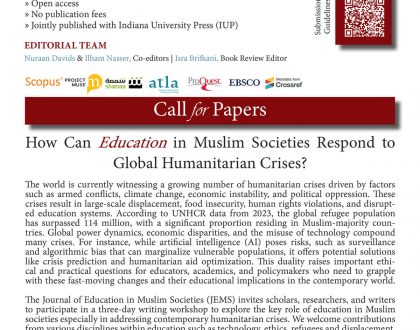The Islamic Garden: Art, Science, or Faith?

On January 8, 2020, Dr. Safei-Eldin Hamed, Professor of Architecture, Planning, and Environmental Studies, presented a lecture at the International Institute of Islamic Thought (IIIT) titled “The Islamic Garden: Art, Science, or Faith?” The topic revolved around the different aspects of an Islamic garden – from its artistic design to its spiritual purpose.
Dr. Hamed began the presentation by asking a few questions including “What is an Islamic Garden? Why do we study the topic of Islamic gardens? What are the primary factors that influenced the design of the historical Islamic gardens?” He explained that an Islamic garden is “a designed landscape with specific intentions that applies ideological principles rooted in the Islamic faith and that uses distinct design elements.” He said that the purpose of studying the Islamic garden is to reveal the spiritual, poetic and philosophical dimensions. Western study eliminates these dimensions and focuses only the aspect of beauty found in the geometric designs, the water structures, and the various plants and landscaping.
The designs of Islamic gardens were influenced by various cultures and civilizations, yet they shared several common elements such as water features or fountains, trees, flowers, courtyards, and sometimes calligraphy and other designs on walls and walkways. The mention of gardens and flowing streams in the Qur’an also influenced the garden designs. There were multiple uses for an Islamic garden, which was well thought out and planned. It was considered a “life-sustaining oasis,” a place to relax and enjoy nature, and a place to connect with the Creator.
The presentation continued to highlight the design uses of water, the influence of the Islamic faith on the gardens, the balance between the physical and metaphysical, and moderation in the designs. The event ended with a Q&A session, where the audience engaged with questions and comments that enriched the discussion.






Recommended Posts

Exploring Bioscience & Islam Seminar Series
May 21, 2025

IIIT at AERA 2025 Annual Meeting
April 14, 2025

JEMS – Call for papers
April 11, 2025
